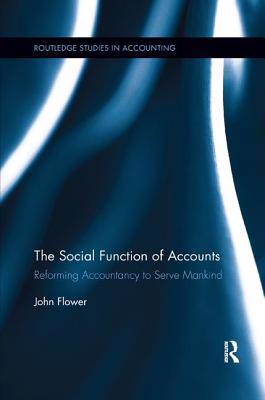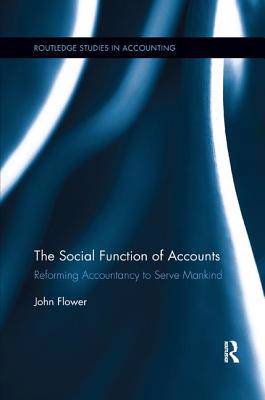
- Retrait gratuit dans votre magasin Club
- 7.000.000 titres dans notre catalogue
- Payer en toute sécurité
- Toujours un magasin près de chez vous
- Retrait gratuit dans votre magasin Club
- 7.000.0000 titres dans notre catalogue
- Payer en toute sécurité
- Toujours un magasin près de chez vous
Description
Accountancy as presently practised is tied to the paradigm of modern financial capitalism with its reliance on market solutions and the maximization of the firm's profits, which are the fundamental causes of most these problems.
The Social Function of Accounts argues that accountancy, as currently organized and practised, is failing society, both in Britain and in the world as a whole. Examining the current problems afflicting the world: financial crises and instability, global warming, degradation of the environment, growing inequality, this book asks the question - what contribution does accountancy make to the solution of these problems? The book argues that the accountancy profession does not serve the public interest, notwithstanding its claim to this effect.
The Social Function of Accounts argues that the moral responsibility of the accountant is analysed with reference to the principal theories of ethics continuing that the individual accountant has a moral responsibility to consider the impact of his actions on other people and on society as a whole. This responsibility is then analysed in a series of chapters dealing with four specific aspects of the matter: Distributive Justice, Sustainability, Financial reporting & the Accountancy Profession.
Concluding with a call for the accountancy profession to adopt a new ethic of service to the public The Social Function of Accounts redraws the boundaries of current accounting literature and will be vital reading for academics, researchers and policy makers in accounting and related disciplines.
Spécifications
Parties prenantes
- Auteur(s) :
- Editeur:
Contenu
- Nombre de pages :
- 224
- Langue:
- Anglais
- Collection :
Caractéristiques
- EAN:
- 9780367243029
- Date de parution :
- 06-06-19
- Format:
- Livre broché
- Format numérique:
- Trade paperback (VS)
- Dimensions :
- 152 mm x 229 mm
- Poids :
- 430 g

Les avis
Nous publions uniquement les avis qui respectent les conditions requises. Consultez nos conditions pour les avis.






